Filter by
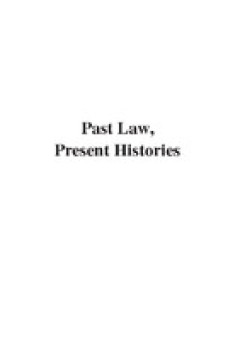
Past Law, Present Histories
This collection brings methods and questions from humanities, law and social sciences disciplines to examine different instances of lawmaking. Contributors explore the problematic of past law in present historical analysis across indigenous Australia and New Zealand, from post-Franco Spain to current international law and maritime regulation, from settler colonial humanitarian debates to effort…
- Edition
- -
- ISBN/ISSN
- -
- Collation
- -
- Series Title
- -
- Call Number
- -
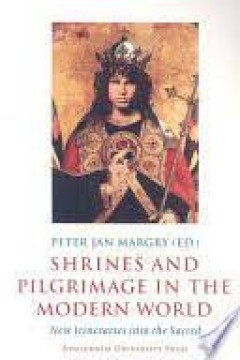
Shrines and Pilgrimage in the Modern World New Itineraries into the Sacred
The modern pilgrimage - to sites ranging from Elvis's Graceland to the Vietnam veterans' annual Ride to the Wall to Jim Morrison's Paris grave - is intertwined with our existential uncertainties in the face of a rapidly changing world. In a climate that reproduces the religious quest in seemingly secular places, it is no longer clear exactly what the term pilgrimage infers - and this unique gli…
- Edition
- -
- ISBN/ISSN
- 9789089640116
- Collation
- -
- Series Title
- -
- Call Number
- -
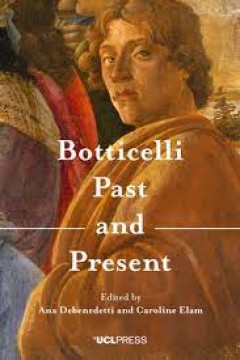
Botticelli Past and Present
The recent exhibitions dedicated to Botticelli around the world show, more than ever, the significant and continued debate about the artist. Botticelli Past and Present engages with this debate. The book comprises four thematic parts, spanning four centuries of Botticelli’s artistic fame and reception from the fifteenth century. Each part comprises a number of essays and includes a short intr…
- Edition
- -
- ISBN/ISSN
- 9781787354593
- Collation
- -
- Series Title
- -
- Call Number
- -
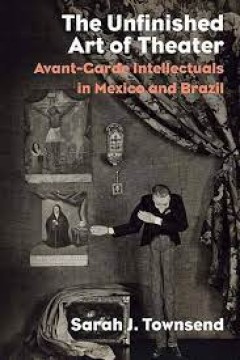
The Unfinished Art of Theater Avant-Garde Intellectuals in Mexico and Brazil
The avant-garde posits the possibility of total rupture with the past. This book pulls back on this futuristic impulse by showing how theater became a key site for artists on the edge of capitalism to reconfigure the role of the aesthetic between 1917 and 1934. The book argues that this “unfinished art”—because of its weakness as a representative institution in Mexico and Brazil, where th…
- Edition
- -
- ISBN/ISSN
- 9780810137400
- Collation
- -
- Series Title
- -
- Call Number
- -

The Dynamics of Cultural Borders
This volume encompasses a broad span of issues related to borders as areas of intense activity substantially contributing to the dynamics of culture. The chapters address questions relating to the construction and reconstruction of borders, as well as the experience and representation of physical, spiritual, imagined and symbolic borders. The authors provide perspectives on emerging and dissolv…
- Edition
- -
- ISBN/ISSN
- 9789949770823
- Collation
- 260 halaman
- Series Title
- Approaches to Culture Theory, 6
- Call Number
- 800 KAN d

Histories of technology, the Environment and Modern Britain
Histories of Technology, the Environment and Modern Britain brings together historians with a wide range of interests to take a uniquely wide-lens view of how technology and the environment have been intimately and irreversibly entangled in Britain over the last 300 years. It combines, for the first time, two perspectives with much to say about Britain since the industrial revolution: the histo…
- Edition
- -
- ISBN/ISSN
- 9781911576570
- Collation
- -
- Series Title
- -
- Call Number
- 900 HIS h
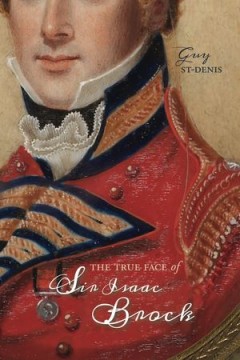
The True Face of Sir Isaac Brock
Major General Sir Isaac Brock is remembered as the Hero of Upper Canada for his defence of what is now Ontario during the War of 1812, and also for his noble death at the Battle of Queenston Heights. In the more than two centuries since then, Brock’s likeness has been lost in a confusing array of portraits—most of which are misidentified or conceptual. The 1824 monument constructed to honou…
- Edition
- -
- ISBN/ISSN
- 9781773850214
- Collation
- -
- Series Title
- -
- Call Number
- 920 DEN t
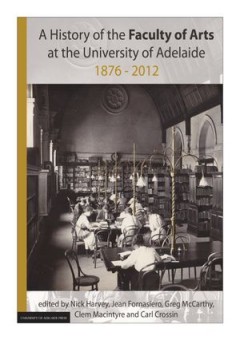
A History of the Faculty of Arts at the University of Adelaide : 1876-2012
The Bachelor of Arts (BA) was the first recognised degree at the University of Adelaide. Although informal classes for some subjects were held at the University between 1873 and 1875, the first official University lecture was a Latin lecture at 10 am on Monday 28 March 1876. This was followed by lectures in Greek, English and Mental Philosophy. By 1878, the first BA student, Thomas Ainslie Cate…
- Edition
- -
- ISBN/ISSN
- 9781922064363
- Collation
- 412 pages
- Series Title
- -
- Call Number
- 900 HAR h
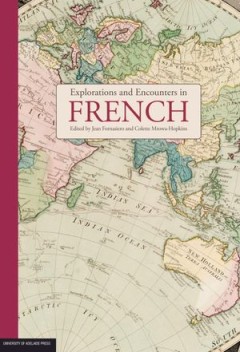
Explorations and Encounters in French
With a title derived literally from the explorations of the French in the Pacific and metaphorically from classroom encounters with another culture—both of which form important subsections to the volume—Explorations and Encounters in French actively seeks to unite those fields of enquiry sometimes seen as separate, namely, culture and language. The essays selected for inclusion in Explorati…
- Edition
- -
- ISBN/ISSN
- 9780980672329
- Collation
- 322 pages
- Series Title
- -
- Call Number
- 940 FOR e

Civil War Congress and the Creation of Modern America : A Revolution on the H…
Most literature on the Civil War focuses on soldiers, battles, and politics. But for every soldier in the United States Army, there were nine civilians at home. The war affected those left on the home front in many ways. Westward expansion and land ownership increased. The draft disrupted families while a shortage of male workers created opportunities for women that were previously unknown. …
- Edition
- -
- ISBN/ISSN
- 9780821423387
- Collation
- -
- Series Title
- Perspectives on the History of Congress, 1801–1877
- Call Number
- 900 CIV
 Computer Science, Information & General Works
Computer Science, Information & General Works  Philosophy & Psychology
Philosophy & Psychology  Religion
Religion  Social Sciences
Social Sciences  Language
Language  Pure Science
Pure Science  Applied Sciences
Applied Sciences  Art & Recreation
Art & Recreation  Literature
Literature  History & Geography
History & Geography